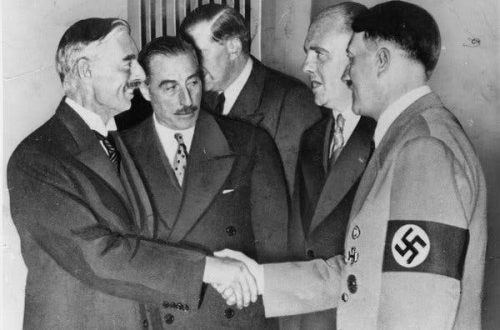This week marks the 66th anniversary of the dropping of the bombs on Hiroshima and Nagasaki. The Boston Globe has used the opportunity to publish some revisionist propaganda. Based on the work of Tsuyoshi Hasegawa and his 2005 book, Racing The Enemy: Stalin, Truman and the Surrender of Japan, the Globe claims that there is “compelling evidence that it was the Soviet entry into the Pacific conflict, not Hiroshima and Nagasaki, that forced Japan’s surrender.”
In 2006, the Society for Historians of American Foreign Relations (SHAFR) awarded Hasegawa the Robert Ferrell Book Prize for this work. Ironically, Robert Ferrell himself condemned Racing the Enemy in his own book published two weeks later. [1] He was not alone. Reviewers of Hasegawa were damning.
According to Robert Maddox, historian and editor of Hiroshima in History: The Myths of Revisionism:
Racing the Enemy is based upon pervasive distortions of the documents upon which it is based, and what Hasegawa presents as facts often turn out to be no more than products of his own vivid imagination.
According to military historian D.M. Giangreco:
Racing the Enemy offers an extraordinarily biased and rather dishonest perspective that may appeal to neonationalists in Japan, but will not be useful to many others.
According to Robert Newman, author of Truman and the Hiroshima Cult,
Hasegawa is not only highly selective, he distorts and misrepresents consistently.
Elsewhere Newman commented:
Any classification of writers on the Pacific War will put Tsuyoshi Hasegawa high on the list of apologists for Japan. [2]
According to Michael Kort, author of the The Columbia Guide to Hiroshima and the Bomb, Hasegawa’s evidence “does not back up his claims,” “his methodology is faulty” and “at key points in his narrative [Hasegawa] takes excessive liberty in interpreting his sources… At best, he leaves the revisionist case as he found it, in ruins.”
According to Sadao Asada, author of the acclaimed paper, “The Shock of the Atomic Bomb and Japan’s Decision to Surrender: A Reconsideration” [3], Hasegawa “gives no evidence for the primacy of Soviet entry in the decision for surrender, except for the well-known fact that it dashed Japan’s last hope of Soviet mediation.” [4]
Why were all these reviewers so dismissive of Hasegawa’s thesis? It is because the evidence proves that the Japanese decision to terminate the war was made before the Soviet entry.
The Japanese were unaware of the Soviet declaration of war until they intercepted a broadcast at dawn on August 9, 1945. But it was on the morning of August 8 that Foreign Minister Togo informed Emperor Hirohito that the atomic bomb had “revolutionized modern warfare” and might be “used as the turning point in bringing an end to the war.” He warned that the United States would continue to destroy Japanese cities with atomic bombs unless Japan stopped fighting. Hirohito concurred and urged Togo to “do his utmost to bring about a prompt termination of the war.” He ordered Togo to inform Prime Minister Suzuki of his wish.
Asada describes what happened next:
On the night of August 8, Suzuki told Sakomizu Hisatsune, chief cabinet secretary, “Now that we know it was an atomic bomb that was dropped on Hiroshima, I will give my views on the termination of the war at tomorrow’s Supreme War Council, and I want you to make preparations for me.”…. The hitherto vacillating and sphinx-like Suzuki had finally made up his mind. It is important to note that Suzuki did so before he was informed of the Soviet entry into the war early on the following day.
These are inconvenient facts for those who would like to shift the credit for ending the war from Truman to Stalin. Could this be why none of the authorities quoted above, and none of the evidence just mentioned, appeared anywhere in the Boston Globe article?
Hat Tip: Paul Bogdanor
[1] Harry S. Truman and the Cold War Revisionists, p. 114n2.
[2] Pacific Historical Review, Vol. 78, No. 1, 2009.
[3] Pacific Historical Review, Vol 67, No. 4, 1998.
[4] The Journal of Strategic Studies, Vol. 29, No.1, 2006.
[5] The Review of Politics, Vol. 68, No. 3, 2006.


